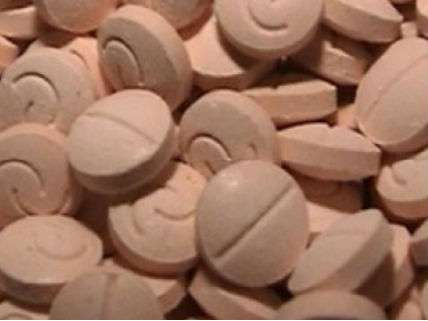ISIS Terrorists Did Not Take Captagon or Any Other Drugs Before the Paris Attacks
- OurStudio

- Jan 6, 2016
- 2 min read

Last year's sensational stories about Captagon, a stimulant pill reportedly popular among participants in Syria's civil war, prompted speculation that the drug played a role in the terrorist attacks that killed 140 people in Paris on November 13. An Australian Broadcasting Corporation (ABC) report gives you the flavor:
Is it possible to slaughter dozens of innocent people without batting an eyelid, without feeling the slightest remorse? Survivors of the Paris attacks have described some of the gunmen as "zombie-like," even serene, as they pulled their triggers and killed as many people as they could. French media are reporting evidence that the attackers were high on a drug that is found almost exclusively in the Middle East, and increasingly used by Islamic State fighters. It's been dubbed the "jihadist's drug" because of its ability to mask pain, fear and hunger, and keep fighters awake, calm and alert for long stretches. Captagon—a synthetic amphetamine-based pill—is considered the drug of choice for Islamic State fighters in Syria, Iraq and, now it seems, Paris.
Although "forensic tests have yet to confirm the nature of the chemicals found" in a hotel room used by the attackers, ABC said, "French media reports say there is increasing evidence the Paris attackers may have taken Captagon to prepare themselves in the hours before the November 13 attacks."
Or maybe not. France Info reports that toxicological tests "revealed that the terrorists were not under the influence of drugs during the carnage." The tests showed "they had taken no drugs or doping substance or alcohol before going to commit their massacres." Apparently they were under the influence of nothing more than a fanatical belief in the divinely blessed rightness of their cause.
As with the savage 2012 face-chewing attack in Miami that was widely attributed to "bath salts" (synthetic cathinones) even though it turned out that the perpetrator had not taken any, we can expect this legend of appalling drug-related violence to persist despite its decisive refutation. Only last April, CBS health writer Jessica Firger reported that alpha-PVP, a.k.a. flakka, is in "the same class of chemical that's used to make so-called bath salts, a drug that was found to be behind a number of alarming incidents, including the case of a man in Miami who allegedly chewed another man's face while high on bath salts in 2012."
[Thanks to Claudio Vidal for the tip.]




Comments